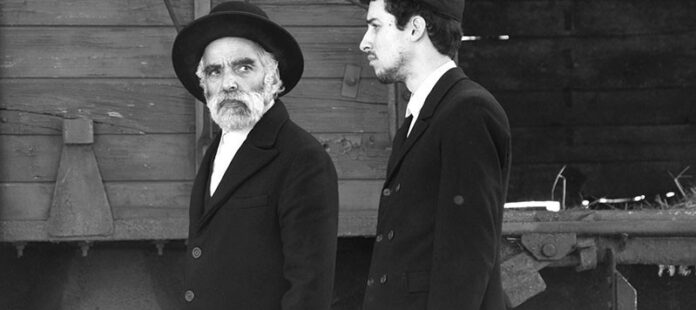It’s a couple of days before the end of WWII, and a no-name Hungarian village is about to celebrate a wedding.
Ferenc Török’s 1945 starts in the household of the groom. He’s the son of the local dignitary, the bald, bespectacled, town clerk István (Péter Rudolf, a vision of Central European pomp). The marriage is a sham. The big man’s son, Árpád (Bence Tasnádi), is aware that his fiancé, Kisrószi (Dóra Sztarenki), loves another man, and she’s only marrying him to get the local drug and notions store as her bride price.
There’s another wedding, just as ill-omened, underway. We hear it babbled about on political radio commercials and we see it heralded by a Red Army Jeep full of the occupying Ivans, who harass the locals and mooch the wedding Champagne. A few months away are parliamentary elections, a nuptial that will eventually chain Hungary to the Soviet Union.
That’s in the future, and something of a more immediate threat has turned up. A somber pair of Jews, father and son, survivors of the camps, have arrived. They’ve come in from the railroad station, an hour’s walk away. As they wend their way through the town, the village drunk (József Szarvas) makes clear he knows who they might be and how they were dispossessed.
1945‘s black-and-white photography starkly contrasts the whiteness of the sun-struck village with the black-clad intruders. It’s a sweltering August day, with the hay already harvested, and the stubble roasting in the sun. Everything is hot and dry, but not quite cut-and-dried, though the characters in this town-without-pity stay pretty much as we see them at first.
The fateful year 1945 may seem like the distant past, but this movie is timely. Some Central European politicians are trying to downplay the Holocaust, but this film won’t let them forget. The final, wordless shot of a locomotive’s black smoke alludes to the concentration camp smokestacks that many of these good country people helped to fuel.
‘1945’ opens Friday at Summerfield Cinemas, 551 Summerfield Road, Santa Rosa. 707.525.8909.









